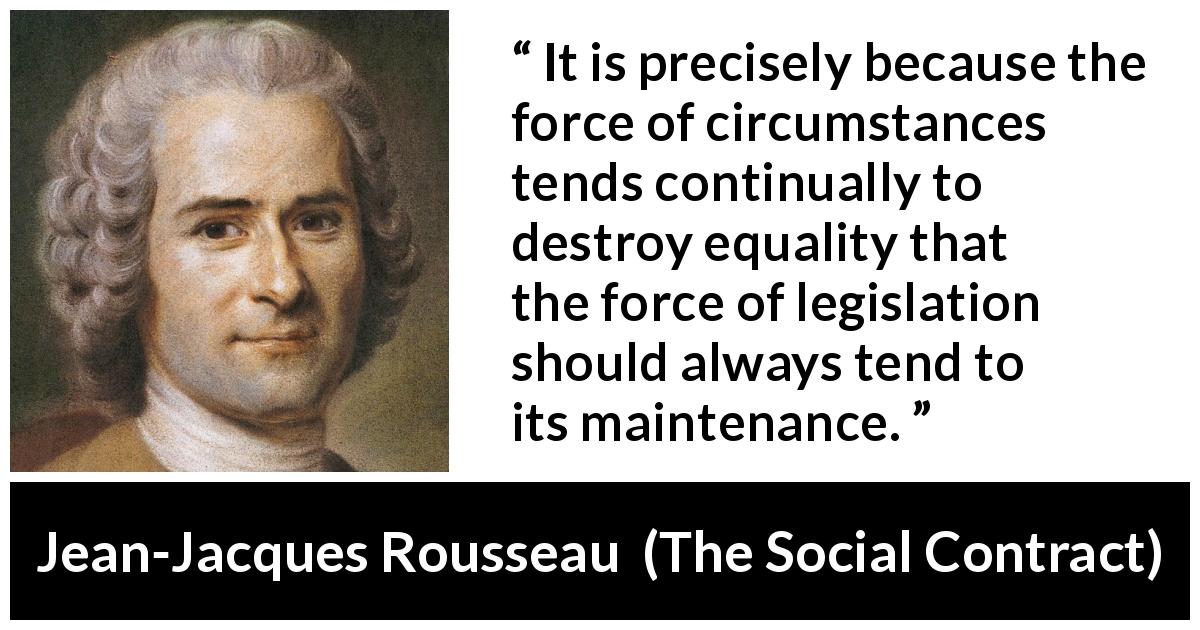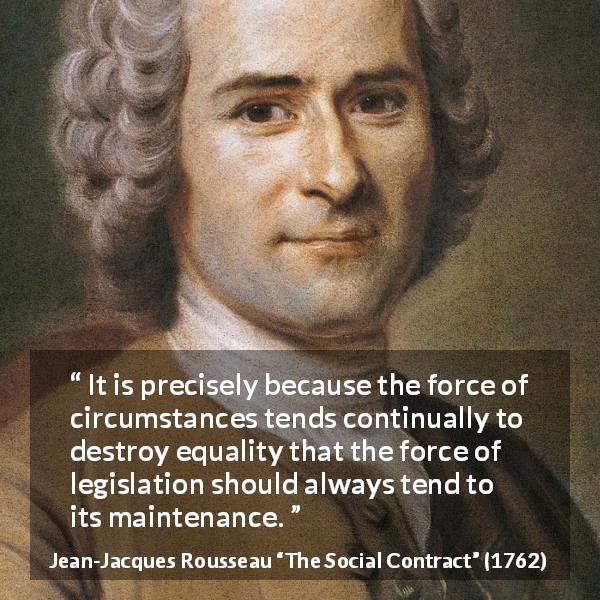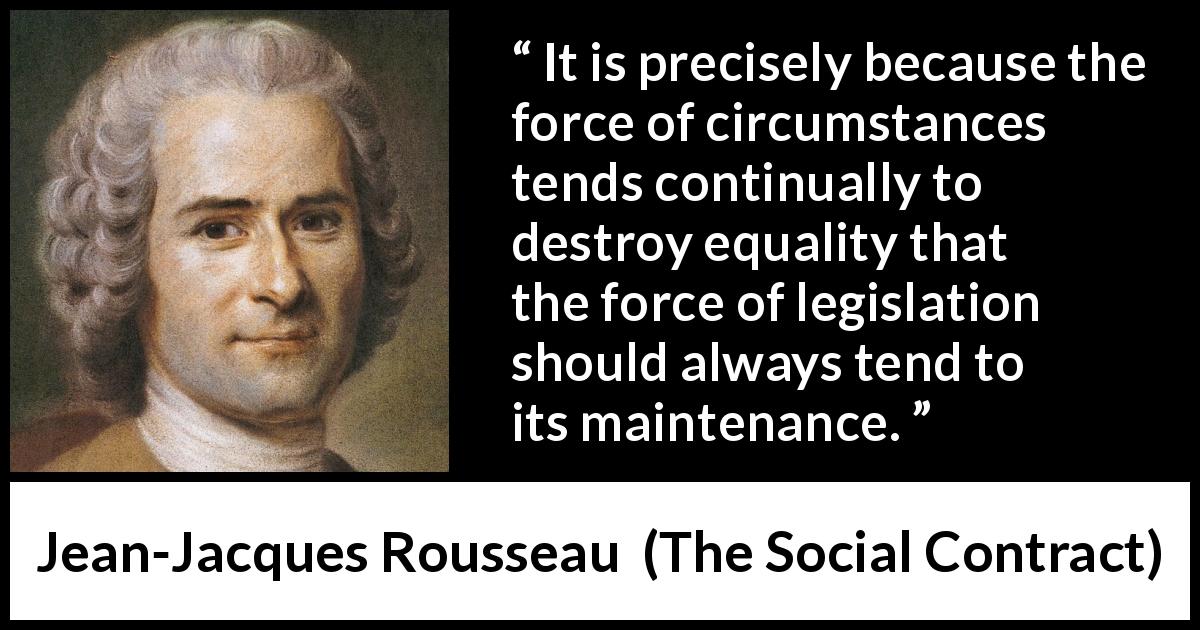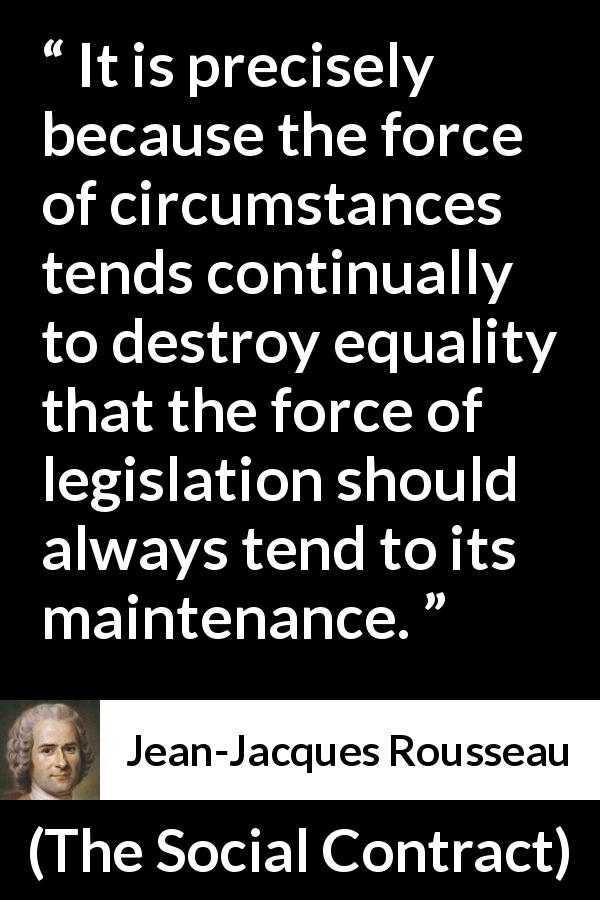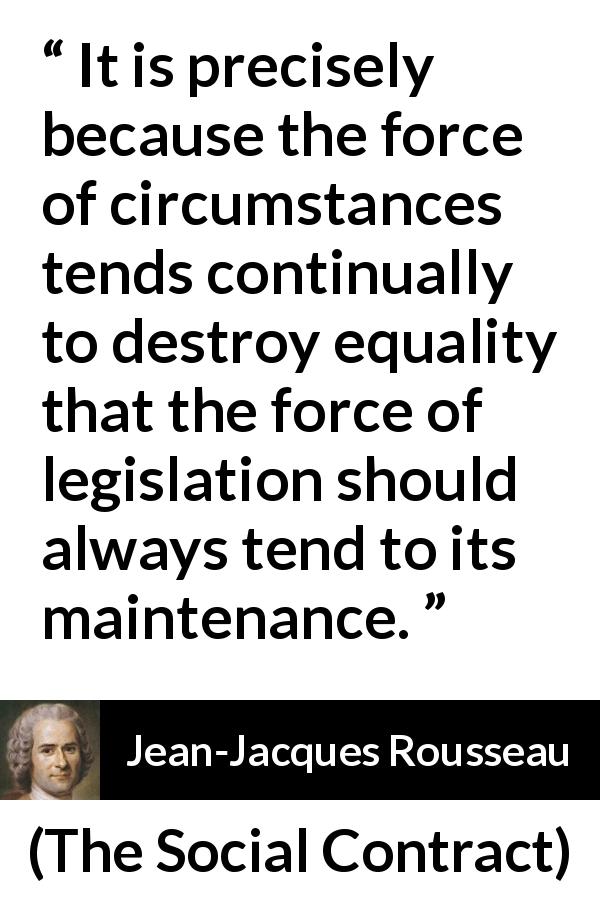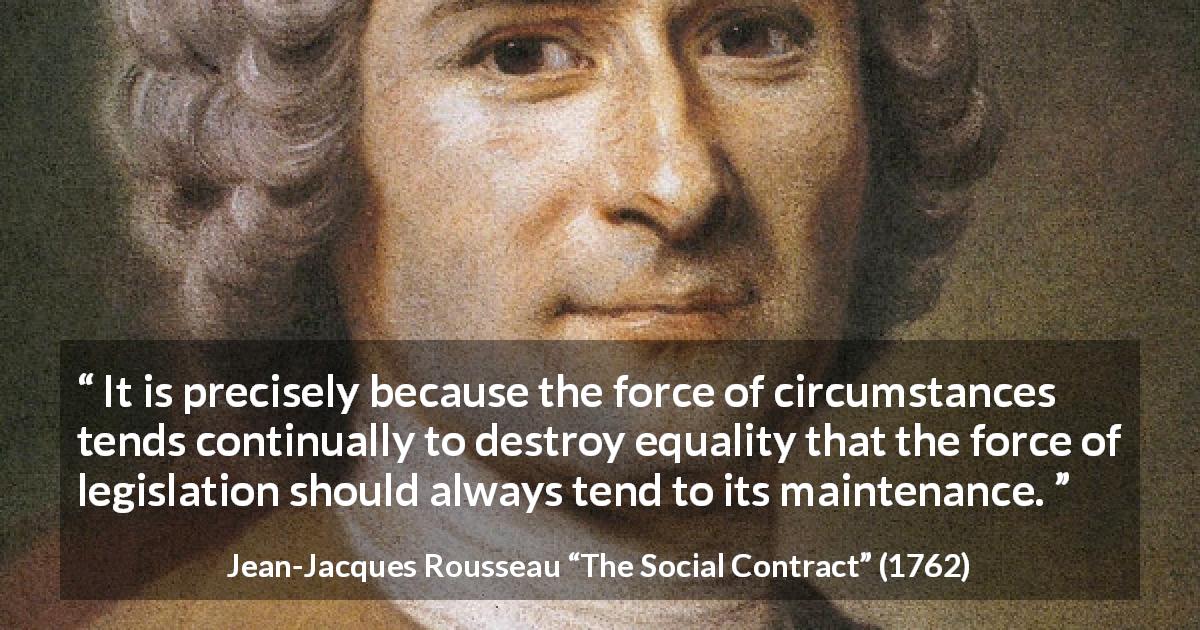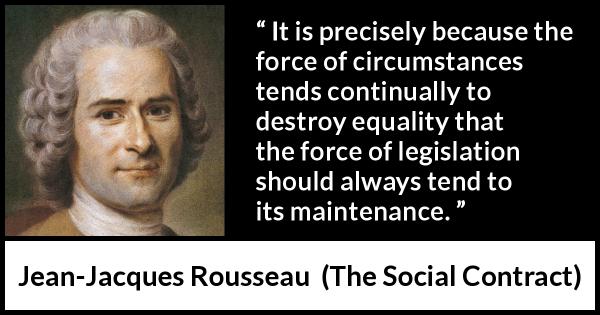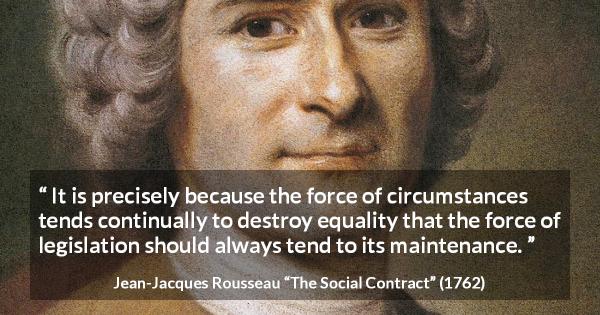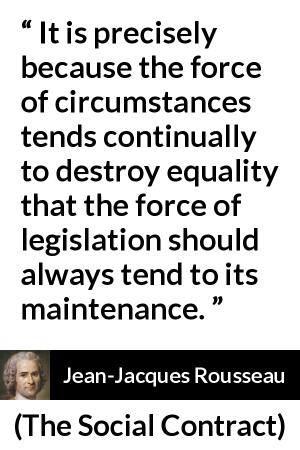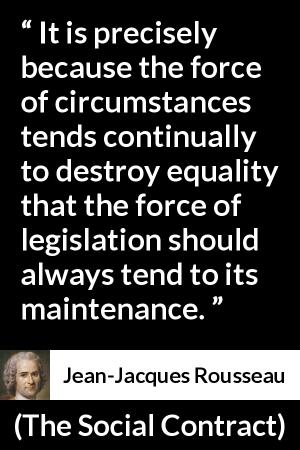“ It is precisely because the force of circumstances tends continually to destroy equality that the force of legislation should always tend to its maintenance. ”
Jean-Jacques Rousseau, The Social Contract (1762). copy citation
| Author | Jean-Jacques Rousseau |
|---|---|
| Source | The Social Contract |
| Topic | equality law force |
| Date | 1762 |
| Language | English |
| Reference | Of the Social Contract, or Principles of Political Law, Book II |
| Note | Translated by George Douglas Howard Cole |
| Weblink | https://en.wikisource.org/wiki/The_Social_Contract/Book_II |
Context
“I have already defined civil liberty; by equality, we should understand, not that the degrees of power and riches are to be absolutely identical for everybody; but that power shall never be great enough for violence, and shall always be exercised by virtue of rank and law; and that, in respect of riches, no citizen shall ever be wealthy enough to buy another, and none poor enough to be forced to sell himself:1 6 which implies, on the part of the great, moderation in goods and position, and, on the side of the common sort, moderation in avarice and covetousness.
Such equality, we are told, is an unpractical ideal that cannot actually exist. But if its abuse is inevitable, does it follow that we should not at least make regulations concerning it? It is precisely because the force of circumstances tends continually to destroy equality that the force of legislation should always tend to its maintenance.
But these general objects of every good legislative system need modifying in every country in accordance with the local situation and the temper of the inhabitants; and these circumstances should determine, in each case, the particular system of institutions which is best, not perhaps in itself, but for the State for which it is destined.” source
Such equality, we are told, is an unpractical ideal that cannot actually exist. But if its abuse is inevitable, does it follow that we should not at least make regulations concerning it? It is precisely because the force of circumstances tends continually to destroy equality that the force of legislation should always tend to its maintenance.
But these general objects of every good legislative system need modifying in every country in accordance with the local situation and the temper of the inhabitants; and these circumstances should determine, in each case, the particular system of institutions which is best, not perhaps in itself, but for the State for which it is destined.” source
